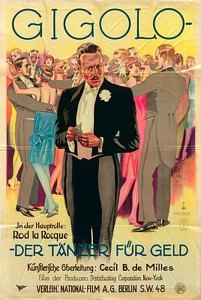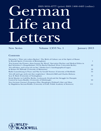 25 – 27 April 2013, at Johannes Gutenberg University, Mainz
25 – 27 April 2013, at Johannes Gutenberg University, Mainz
In the first half of the 20th century, but especially during the 1920s, the publisher Ullstein occupied a central role in German print media. With its innovative business methods, modern printing technology and American-style advertising methods, Ullstein became a dominant force in German culture.
The conference “Der ganze Verlag ist einfach eine Bonbonniere.” Der Ullstein Verlag in der ersten Hälfte des zwanzigsten Jahrhunderts aims to bring together research on inividual Ullstein publications, significant journalists, editors, authors and publicists working for the company, and its wide social, cultural, political and economic role in history.
Proposals for papers of thirty minutes are invited on any of the above-mentioned topics. Proposals should be no longer than 3,500 characters long.
Offers of papers should be sent by 30 May 2012 to David Oels (oels[at]uni‐mainz.de) or Ute Schneider (uschneid[at]uni‐mainz.de)
 In The Guardian, the journalist Vanessa Thorpe follows in the footsteps of Franz Hessel, author of the 1929 book Walking in Berlin. Quite remarkably, she contends that “the city that comes to life on Hessel’s pages could be straight out of Cabaret, based on Christopher Isherwood’s novel Goodbye to Berlin” – a book published 10 years later. If anything, Isherwood took inspiration from Hessel rather than the other way round.
In The Guardian, the journalist Vanessa Thorpe follows in the footsteps of Franz Hessel, author of the 1929 book Walking in Berlin. Quite remarkably, she contends that “the city that comes to life on Hessel’s pages could be straight out of Cabaret, based on Christopher Isherwood’s novel Goodbye to Berlin” – a book published 10 years later. If anything, Isherwood took inspiration from Hessel rather than the other way round.








